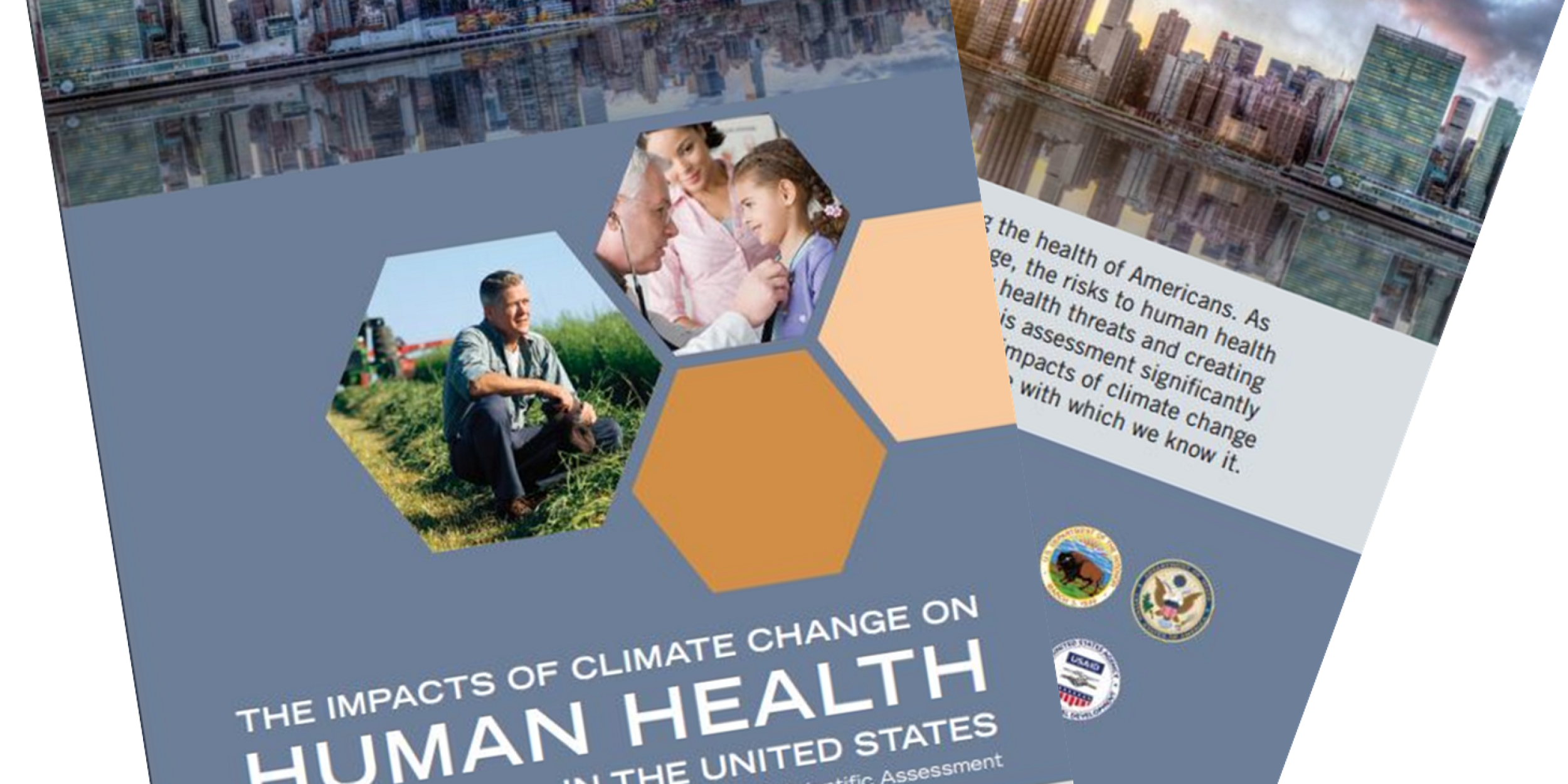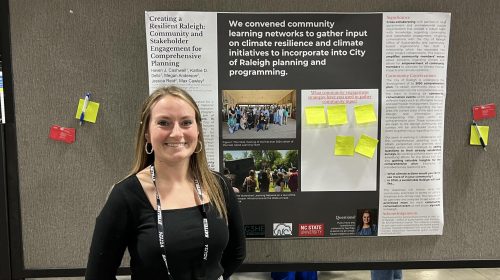On April 4, the White House Office of Science and Technology Policy released the inaugural Climate Change and Human Health Assessment: ‘Impacts of Climate Change on Human Health in the United States: A Scientific Assessment.” This scientific assessment was developed by the U.S. Global Change Research Program (USGCRP), as part of the ongoing efforts of USGCRP’s sustained National Climate Assessment process and as called for under the President’s Climate Action Plan. The report provides a comprehensive, evidence-based, and, where possible, quantitative estimation of current and future impacts of climate change on public health.
The report was lead under the auspices of the USGCRP Climate Change and Human Health Group (CCHHG) lead by NOAA, NIH and CDC, had over 100 authors (federal, contractor and grantee), engaged eight agencies and multiple departments therein. NOAA contributed leadership (CCHHG and Steering committee), Lead Authors, contributing authors, and critical support from the NOAA-funded Technical Support Unit. NOAA-funded research including from RISAs, the Ecological Forecasting Roadmap, and the former Oceans and Human Health Program. along with analysis of data and products from NCEI and NWS provided core science contributions to these findings. This report provides policy makers and the public the most current science on how climate change affects human health. The two primary impacts are first, by changing the severity or frequency of health problems that are already affected by climate and weather factors; and second, by creating unprecedented or unanticipated health problems or health threats in places where they have not previously occurred.
CPO provided key leadership on the overall report through its CCHHG co-chair, and was lead author on the Water-Related Illness chapter–which fundamentally reframed the water, health and climate change issue. Research from RISAs provided critical information.
Menu
USGCRP Climate and Health Assessment Released










